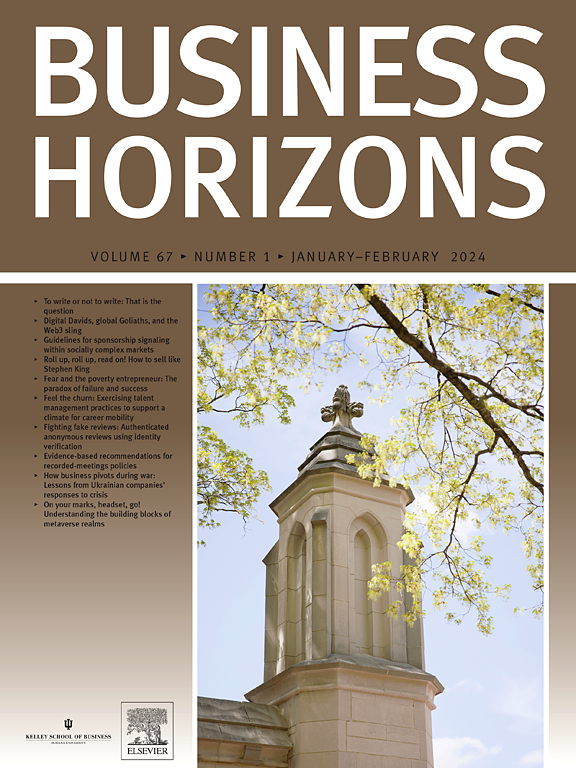Peace polysemy in business and peace agendas
IF 7
3区 管理学
Q1 BUSINESS
引用次数: 0
Abstract
This article presents an empirical study that delves into the complex dynamics of business–society relationships in fragile postconflict contexts. It addresses a crucial question: How does the interpretation of peace shape business and peace agendas? Our qualitative case study of Colombia, involving 41 stakeholder interviews and document analysis, focuses on the department of Antioquia. This region is undergoing a transformative process through the Development Programs with a Territorial Approach, known as PDET. These instruments aim to stabilize and transform conflict-affected regions, thereby contributing to peacebuilding in the country. Our findings reveal three distinct types of business and peace agendas, each rooted in different interpretations of peace: those that are direct, indirect, or independent from the government peace agendas. We propose an approach for tracing peace polysemy and establishing a minimal convergence between peace agendas, offering practical implications for decision-makers. We contribute to business and peace studies and identify promising avenues for future research.
追溯哥伦比亚企业促进和平议程中的和平多义词
本文介绍了一项实证研究,深入探讨了冲突后脆弱环境中企业与社会关系的复杂动态。文章探讨了一个关键问题:对和平的解释如何影响企业促进和平的议程?我们对哥伦比亚进行了定性案例研究,涉及 41 个利益相关者访谈和文件分析,重点关注安蒂奥基亚省。该地区正在通过被称为 "PDET "的 "领土方法发展计划"(Development Programs with a Territorial Approach)进行转型。这些工具旨在稳定和改造受冲突影响的地区,从而促进该国的和平建设。我们的研究结果揭示了三种不同类型的企业促进和平议程,每种议程都植根于对和平的不同解释:直接、间接或独立于政府和平议程的议程。我们提出了一种追踪和平多义性和建立和平议程之间最低趋同性的方法,为决策者提供了实际意义。我们为商业与和平研究做出了贡献,并为未来的研究指明了大有可为的途径。
本文章由计算机程序翻译,如有差异,请以英文原文为准。
求助全文
约1分钟内获得全文
求助全文
来源期刊

Business Horizons
BUSINESS-
CiteScore
17.70
自引率
5.40%
发文量
105
期刊介绍:
Business Horizons, the bimonthly journal of the Kelley School of Business at Indiana University, is dedicated to publishing original articles that appeal to both business academics and practitioners. Our editorial focus is on covering a diverse array of topics within the broader field of business, with a particular emphasis on identifying critical business issues and proposing practical solutions. Our goal is to inspire readers to approach business practices from new and innovative perspectives. Business Horizons occupies a distinctive position among business publications by offering articles that strike a balance between academic rigor and practical relevance. As such, our articles are grounded in scholarly research yet presented in a clear and accessible format, making them relevant to a broad audience within the business community.
 求助内容:
求助内容: 应助结果提醒方式:
应助结果提醒方式:


